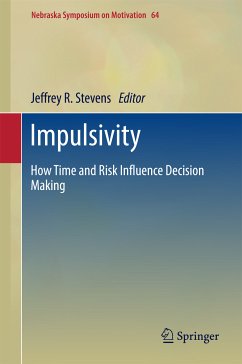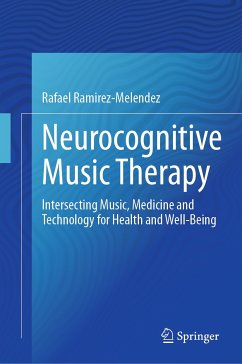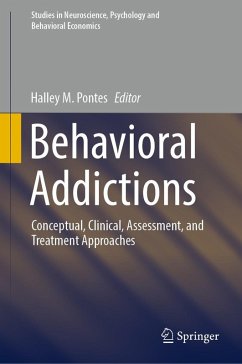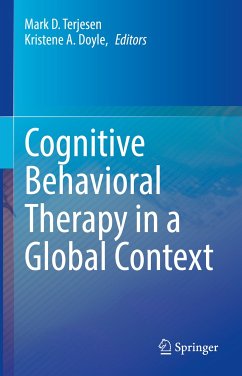
Embodied Hot Cognitive Vulnerability to Emotional Disorders¿ (eBook, PDF)
From Theory to Treatment¿
Versandkostenfrei!
Sofort per Download lieferbar
40,95 €
inkl. MwSt.
Weitere Ausgaben:

PAYBACK Punkte
20 °P sammeln!
The way we make sense of emotional situations has long been considered a foundation for the construction of our emotional experiences. Sometimes emotional meanings become distorted and so do our emotional experiences become disturbed. In the last decades, an embodied construction of emotional meanings has emerged. In this book, the embodied simulation framework is introduced for distorted emotional and motivational appraisals such as irrational beliefs, focusing on hyper-reactive emotional and motivational neural embodied simulations as core processes of cognitive vulnerability to emotional di...
The way we make sense of emotional situations has long been considered a foundation for the construction of our emotional experiences. Sometimes emotional meanings become distorted and so do our emotional experiences become disturbed. In the last decades, an embodied construction of emotional meanings has emerged. In this book, the embodied simulation framework is introduced for distorted emotional and motivational appraisals such as irrational beliefs, focusing on hyper-reactive emotional and motivational neural embodied simulations as core processes of cognitive vulnerability to emotional disorders. By embodying distorted emotional cognition we can extend the traditional views of the development of distorted emotional appraisals beyond learning from stress-sensitization process. Conclusions for the conceptualization of distorted emotional appraisals and treatment implications are discussed.
Distorted emotional cognitions such as rigidthinking (I should succeed), awfulizing (It's awful) and low frustration tolerance (I can't stand it) are both vulnerabilities to emotional disorders and targets of psychotherapy. In this book, I argue that distorted emotional cognitions which act as proximal vulnerability to emotional disorders are embodied in hyper-reactive neural states involved in dysregulated emotions. Traditionally, excessive negative knowledge has been considered the basis of the cognitive vulnerability to emotional disorders. I suggest that the differences in the affective embodiments of distorted cognition confer its vulnerability status, rather than the differences in dysfunctional knowledge. I propose that negative knowledge and stress-induced brain changes conflate each other in building cognitive vulnerability to disturbed emotion. This model of distorted emotional cognition suggests new integration of learning and medication interventions in psychotherapy.
This book is an important contribution to the literature given that a new model for the conceptualization of cognitive vulnerability is presented which extends the way we integrate biological, behavioral, and memory interventions in cognitive restructuring. This work is part of a larger project on embodied clinical cognition.
Distorted emotional cognitions such as rigidthinking (I should succeed), awfulizing (It's awful) and low frustration tolerance (I can't stand it) are both vulnerabilities to emotional disorders and targets of psychotherapy. In this book, I argue that distorted emotional cognitions which act as proximal vulnerability to emotional disorders are embodied in hyper-reactive neural states involved in dysregulated emotions. Traditionally, excessive negative knowledge has been considered the basis of the cognitive vulnerability to emotional disorders. I suggest that the differences in the affective embodiments of distorted cognition confer its vulnerability status, rather than the differences in dysfunctional knowledge. I propose that negative knowledge and stress-induced brain changes conflate each other in building cognitive vulnerability to disturbed emotion. This model of distorted emotional cognition suggests new integration of learning and medication interventions in psychotherapy.
This book is an important contribution to the literature given that a new model for the conceptualization of cognitive vulnerability is presented which extends the way we integrate biological, behavioral, and memory interventions in cognitive restructuring. This work is part of a larger project on embodied clinical cognition.
Dieser Download kann aus rechtlichen Gründen nur mit Rechnungsadresse in A, B, BG, CY, CZ, D, DK, EW, E, FIN, F, GR, HR, H, IRL, I, LT, L, LR, M, NL, PL, P, R, S, SLO, SK ausgeliefert werden.












